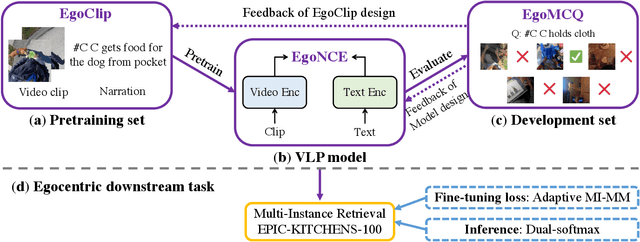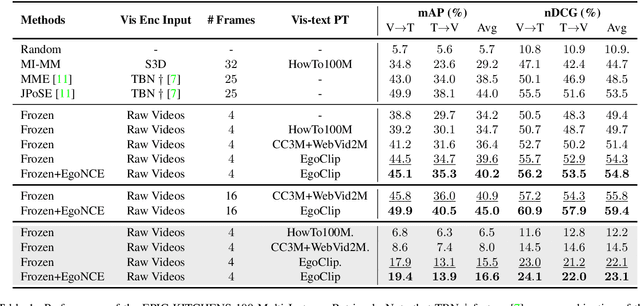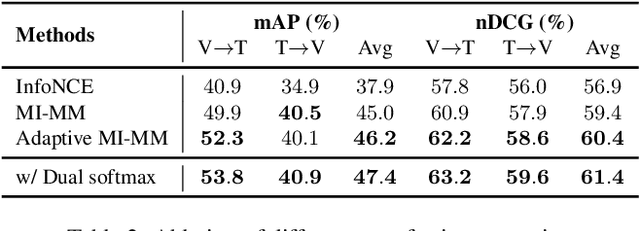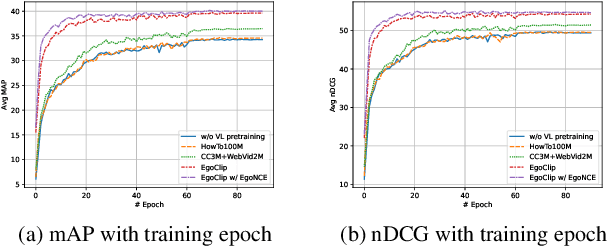Yanru Zhu
MAP: Modality-Agnostic Uncertainty-Aware Vision-Language Pre-training Model
Oct 11, 2022



Abstract:Multimodal semantic understanding often has to deal with uncertainty, which means the obtained message tends to refer to multiple targets. Such uncertainty is problematic for our interpretation, including intra-modal and inter-modal uncertainty. Little effort studies the modeling of this uncertainty, particularly in pre-training on unlabeled datasets and fine-tuning in task-specific downstream tasks. To address this, we project the representations of all modalities as probabilistic distributions via a Probability Distribution Encoder (PDE) by utilizing rich multimodal semantic information. Furthermore, we integrate uncertainty modeling with popular pre-training frameworks and propose suitable pre-training tasks: Distribution-based Vision-Language Contrastive learning (D-VLC), Distribution-based Masked Language Modeling (D-MLM), and Distribution-based Image-Text Matching (D-ITM). The fine-tuned models are applied to challenging downstream tasks, including image-text retrieval, visual question answering, visual reasoning, and visual entailment, and achieve state-of-the-art results. Code is released at https://github.com/IIGROUP/MAP.
Egocentric Video-Language Pretraining @ EPIC-KITCHENS-100 Multi-Instance Retrieval Challenge 2022
Jul 04, 2022



Abstract:In this report, we propose a video-language pretraining (VLP) based solution \cite{kevin2022egovlp} for the EPIC-KITCHENS-100 Multi-Instance Retrieval (MIR) challenge. Especially, we exploit the recently released Ego4D dataset \cite{grauman2021ego4d} to pioneer Egocentric VLP from pretraining dataset, pretraining objective, and development set. Based on the above three designs, we develop a pretrained video-language model that is able to transfer its egocentric video-text representation to MIR benchmark. Furthermore, we devise an adaptive multi-instance max-margin loss to effectively fine-tune the model and equip the dual-softmax technique for reliable inference. Our best single model obtains strong performance on the challenge test set with 47.39% mAP and 61.44% nDCG. The code is available at https://github.com/showlab/EgoVLP.
 Add to Chrome
Add to Chrome Add to Firefox
Add to Firefox Add to Edge
Add to Edge